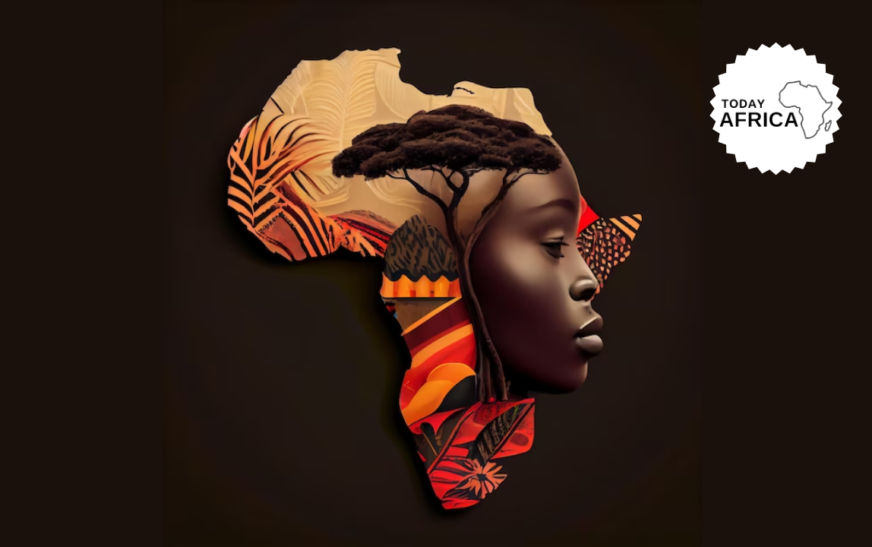China’s investment in Africa has experienced significant growth in recent years, reflecting a deepening economic partnership between the two regions.
In 2024, trade between China and Africa reached $295.5 billion, marking a 6.1% increase from the previous year. South Africa remained China’s largest African trading partner, with $52.4 billion in trade, followed by Nigeria at $21 billion.
Foreign direct investment (FDI) from China into Africa has also seen notable fluctuations. Chinese FDI in Sub-Saharan Africa reached an all-time high of $15.2 billion in 2024, representing 16.5% of newly announced investments.
This surge underscores China’s strategic interest in the region’s economic potential. In September 2024, President Xi Jinping pledged nearly $51 billion in funding over three years to support various sectors across Africa, including infrastructure projects and job creation initiatives.
This commitment aims to bolster economic development and strengthen bilateral ties. These developments highlights China’s investment in Africa and other reasons you’ll get to read in this article.
The Long Game
From a purely economic perspective, Africa is a potentially lucrative market for China. With its under-served market and booming population, the scope for expansion into Africa offers huge potential for Chinese firms.
This is particularly true now that the African Continental Free Trade Area (which was established in 2018) opens up the possibility of cross-border value chains developing in Africa.
Most of the goods that China imports from Africa are natural resources. Many of these resources have strategic relevance, for example, in manufacturing batteries. In return, Chinese companies export a wide range of goods to Africa, including manufactured products, industrial and agricultural machinery, and vehicles.
In terms of foreign direct investment, Chinese companies are still only the fifth-largest investors in Africa after their Dutch, French, US and UK counterparts.
But their ascent has been relatively quick, and while western companies are focused on resources and the financial sector, Chinese ones also invest heavily in construction and manufacturing.
Chinese companies are major players in Africa’s construction sector, often working on projects funded by loans from Chinese banks to African governments. In 2019, for example, Chinese contractors accounted for about 60% of the total value of construction work in Africa.
Some of the infrastructure financed by China has done little to improve trade or economic development in Africa. And it has, admittedly, also contributed to the increased debt burden of several African countries.
The costly expressways that connect Nairobi in Kenya and Kampala in Uganda to the respective international airports, for instance, have made life easier for city elites and international travellers. But they have not led to economic growth.
China’s Quest for Natural Resources
A primary driver of China’s investment in Africa is the continent’s abundant natural resources, which are essential to fuel China’s rapid industrialization and sustained economic growth. With a population exceeding 1.4 billion, China’s demand for energy and raw materials is immense.

Oil and gas
China’s energy consumption has soared in recent years, making it the world’s largest energy consumer and producer. While coal remains a significant energy source, oil consumption has risen sharply, positioning China as the world’s largest importer of oil.
Africa plays a crucial role in meeting this demand, supplying approximately 22% of China’s crude oil imports, equating to about 1.4 million barrels per day. Angola, for instance, has been one of China’s top oil suppliers, underscoring the strategic importance of African oil to China’s energy security.
Minerals and metals
Beyond hydrocarbons, Africa is rich in minerals and metals vital for China’s manufacturing sector. Chinese companies have invested heavily in mining projects across the continent to secure access to these resources.
For example, China’s state-owned mining company, China Nonferrous Metal Mining Group, has invested in copper mining projects in Zambia and the Democratic Republic of Congo. Similarly, Chinese firms have invested in iron ore mining projects in Guinea and Sierra Leone, ensuring a steady supply of raw materials for China’s industries.
Infrastructure Development: Building Pathways to Prosperity
China’s investment strategy in Africa extends beyond resource extraction to encompass large-scale infrastructure development. By financing and constructing roads, railways, ports, and airports, China aims to facilitate trade, improve logistics, and bolster economic growth across the continent.
Transportation networks
Chinese-financed infrastructure projects have transformed transportation networks in several African countries. Notable examples include:
- Addis Ababa-Djibouti railway: This railway connects Ethiopia’s capital to the port city of Djibouti, enhancing trade routes and reducing transportation time for goods.
- Mombasa-Nairobi standard gauge railway: In Kenya, this railway has significantly reduced travel time between the two cities from 12 hours to 4 hours, boosting economic activities along the corridor.
Energy infrastructure
China has also been instrumental in developing Africa’s energy infrastructure. For instance, the Kasumbalesa-Kipushi power transmission line, financed by China’s Exim Bank, connects Zambia and the Democratic Republic of Congo, improving power transmission and reducing electricity losses.
Economic Diversification and Industrialization
China’s investments are not confined to resource extraction and infrastructure; they also encompass sectors that promote economic diversification and industrialization in African countries.
Manufacturing and industrial parks
Chinese companies have established special economic zones and industrial parks in various African nations, fostering local manufacturing and creating employment opportunities. These initiatives aim to transfer technology and skills, contributing to the industrialization of African economies.
Agriculture
Investments in agriculture are another facet of China’s engagement with Africa. By introducing modern farming techniques and investing in agricultural infrastructure, China seeks to boost productivity and ensure food security, benefiting both African nations and China’s food supply chain.
Read Also: Benefits of Investing in Healthcare Startups in Africa This Year
Geopolitical Influence and Soft Power
China’s investments in Africa also serve to expand its geopolitical influence and project soft power on the global stage.
Diplomatic engagement
Through forums like the Forum on China-Africa Cooperation (FOCAC), China has institutionalized its relationship with African countries, offering a platform for dialogue and collaboration. These engagements often result in financial commitments, such as the $50 billion in new funding announced by President Xi Jinping to African nations, aiming to strengthen political and economic ties.
Cultural and educational exchanges
China has invested in cultural centers, language institutes, and educational scholarships across Africa. These initiatives aim to promote Chinese culture and foster goodwill, strengthening bilateral relationships and enhancing China’s image abroad.
Market Expansion and Trade Partnerships

Africa’s emerging markets present lucrative opportunities for Chinese products and services. By investing in the continent, China not only secures resources but also opens new markets for its goods, aligning with its economic objectives.
Trade relations
China has become Africa’s largest trading partner, with trade volumes reaching $282 billion in 2023. This robust trade relationship underscores the mutual benefits derived from China’s investments, as African countries gain access to affordable goods while China secures markets for its products.
Challenges and Criticisms
Despite the benefits, China’s investments in Africa have faced criticisms and challenges that warrant attention.
Debt dependency
Concerns have been raised about African countries accruing significant debt to China, potentially leading to dependency and compromising sovereignty. For instance, Zambia has faced debt restructuring challenges, highlighting the need for careful debt management.
Environmental and social impacts
Some Chinese projects have been criticized for environmental degradation and poor labor practices. For example, an acidic waste spill from a Chinese-owned copper mine in Zambia led to severe environmental contamination, affecting millions who depend on the Kafue River for water and fishing.
Trade imbalances
China-Africa trade has expanded significantly, but it often tilts in China’s favor. Many African nations primarily export raw materials while importing finished goods from China, leading to trade deficits. This structure limits value addition in African economies and hinders local industrialization efforts.
For instance, Nigeria’s trade balance with China remains skewed, as the country exports crude oil but imports machinery, electronics, and textiles, contributing to an unfavorable trade deficit. Some analysts argue that Africa should prioritize policies that encourage domestic production and value addition to mitigate this imbalance.
Read Also: 50 Affordable Co-working Spaces for Startups in African Cities
The Future of China’s Investment in Africa
Despite the challenges, China’s commitment to Africa remains strong. The evolving global economic landscape and shifting geopolitical dynamics will likely shape the future of China-Africa relations in the following ways:
Increased focus on green energy
As China pledges to achieve carbon neutrality by 2060, its investments in Africa are expected to shift towards renewable energy projects. Already, Chinese companies have invested in solar and wind farms in Kenya, Ethiopia, and South Africa. These initiatives not only align with China’s climate goals but also address Africa’s energy deficit.

Technology and digital infrastructure
China has been expanding its footprint in Africa’s technology and digital sectors. Through companies like Huawei and ZTE, China has played a crucial role in building Africa’s telecommunications infrastructure, including 5G networks. This trend is expected to continue, with increased investments in fintech, e-commerce, and smart city projects.
Shift towards sustainable investments
Growing criticism over debt sustainability and environmental concerns may push China to adopt more responsible investment strategies. Future projects could focus on job creation, skills transfer, and sustainable industrialization to foster long-term economic benefits for African nations.
Strengthening political and security ties
Beyond economics, China is expected to deepen its political and security engagement with Africa. With its first overseas military base established in Djibouti, China has signaled its intent to safeguard its interests in the region. Future collaborations may extend to cybersecurity, counterterrorism, and peacekeeping missions.
Read Also: Why is China Investing in Africa? Here’s the Answer
Conclusion
China’s investment in Africa is driven by a complex mix of economic, strategic, and geopolitical interests. From securing natural resources and expanding infrastructure to fostering trade and exerting soft power, China’s presence on the continent has reshaped Africa’s development landscape.
While these investments bring significant benefits—such as improved infrastructure, industrialization, and economic growth—challenges such as debt dependency, environmental concerns, and trade imbalances remain.
To maximize the gains from China’s engagement, African nations must adopt policies that prioritize sustainable development, economic diversification, and equitable trade relationships.
As global power dynamics shift, the future of China-Africa relations will likely evolve, presenting new opportunities and challenges. By fostering balanced and mutually beneficial partnerships, both China and Africa can chart a path toward shared prosperity in the 21st century.
Leave a comment below and follow us on social media for update:
- Facebook: Today Africa
- Instagram: Today Africa
- Twitter: Today Africa
- LinkedIn: Today Africa
- YouTube: Today Africa Studio
















